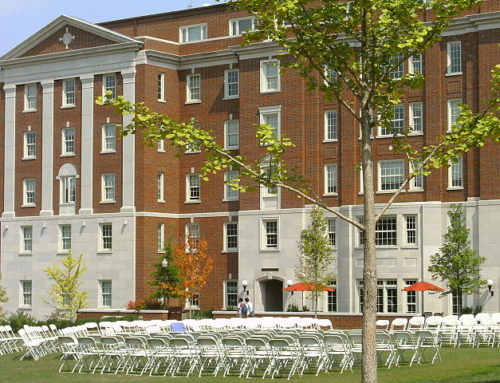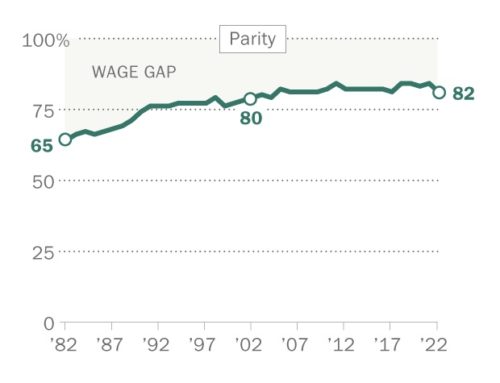By William Jacobson, Wall Street Journal
Today’s Wall Street Journal printed an editorial by William Jacobson, a professor at Cornell Law School. Sadly, the behavior of both the student body and administrators of Oberlin were so mean-spirited that Oberlin lost a legal case that could cost the university $33 million.
I find this case so distressing because Oberlin historically earned an outstanding reputation. That is, the University was the first school to be Coed and integrated racially.
In my judgment students at Oberlin have a misguided view about their educational priorities. According to a 2016 story in the New Yorker, students have bombarded administrators with endless demands for accommodation, including abolishing midterms, banning grades below C, the addition of “trigger warnings” to classic literature and even an $8.20 hourly wage for engaging in activism.
Let me now address the case that led to a successful lawsuit by a grocer against the college.
On Nov. 9, 2016, an African-American male Oberlin student attempted to buy wine from Gibson’s Food Mart and Bakery using a fake ID. Allyn D. Gibson, a grandson of the shop’s owner, refused to sell the underage customer alcohol, then noticed the student had two bottles of wine concealed under his shirt.
As Mr. Gibson called the police the student fled, dropping the bottles on the floor. A scuffle ensued when Mr. Gibson pursued him. Two African-American female Oberlin students, apparently accomplices of the suspect, joined in the physical confrontation. When police arrived on the scene, the three were beating Mr. Gibson on the ground.
None of these facts were ever in dispute, even among the three suspects, who all pleaded guilty to an array of charges. The first suspect swore in his plea statement that Mr. Gibson “was within his legal rights” to detain him, and that he did not believe Gibson’s actions were racially motivated.
Alleging these suspects were actually victims of racial profiling, students launched a campaign to destroy Gibson’s, a fifth-generation family business that had served the Oberlin community for more than 130 years. They organized protests, distributed leaflets accusing the Gibson family of racism, and worked with school administrators to impose financial sanctions on the bakery. Demonstrations became so aggressive that police say they considered calling the riot squad to restore order.
Oberlin administrators agreed to boycott Gibson’s, which had long held catering contracts with the college’s dining service, and they allowed students to skip class to participate in protests. The Gibsons alleged that the administrators guided student-government leaders in promoting a resolution to condemn the bakery and Gibson family. Oberlin’s dean of students, Meredith Raimondo, handed out a flier accusing Gibson’s of having a “long account of racial profiling and discrimination.”
The Gibson family claims administrators told them they’d reinstate the catering contract if they dropped charges against the three shoplifting students and promised to contact the school, not police, if other students stole from their store in the future. The family refused and instead sued Oberlin and Ms. Raimondo, seeking $12.8 million at trial on numerous counts including libel, interference with business contracts and intentional infliction of emotional distress.
As a result of the protests, boycotts and lawsuits, the Gibson family business, which had survived two world wars and the Great Depression, suffered greatly. Its owners took no salary for two years, and nearly all the staff had to be let go. In their closing arguments, Mr. Gibson’s lawyers lamented that without a ruling in their favor, the beloved Oberlin bakery could be forced to close.
On June 7 a jury awarded Gibson’s Food Mart and Bakery, as well as the Gibson family, $11 million in compensatory damages. After punitive damages are decided this week, Oberlin College could owe the Gibsons an additional $22 million.
In this case, Oberlin students and administrators appeared happy to smear a family-run institution in pursuit of a “social justice” agenda. Ignoring the facts, they attempted to destroy a business without concern for the damage they were inflicting on a family and workers in their own community.
For Oberlin, it didn’t have to end this way. At the height of the controversy, the Gibson family says it asked the school to send a letter to students reiterating what had already become clear: The bakery didn’t engage in racial profiling. Administrators refused. Had the college agreed to refute the baseless claims of racism, it is unlikely that the Gibson family would have pursued the matter in court.
The verdict is in, and it regards more than money. The jury held accountable an unhinged progressive activist college that lost concern for the lives of working people in its community.
In my judgment, Oberlin should take steps to reign in the errant behavior of both their students and administrators. When private enterprise engages in such misdemeanors, members of Congress call for the resignation of their senior officers and board of directors. I think comparable steps should be taken at Oberlin.
Can you imagine paying students $8.20 an hour to demonstrate? What kind of reputation will Oberlin retain if it is well known that the lowest grade is a “C”. After reading this article, I worry that Oberlin is forfeiting their historic reputation.



